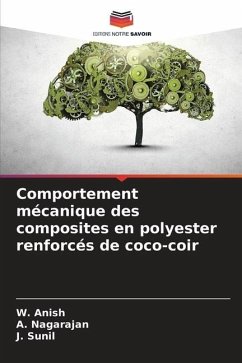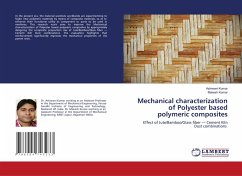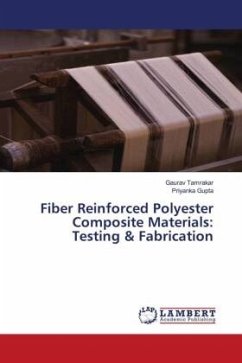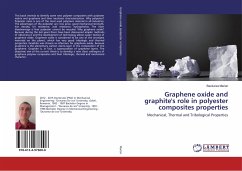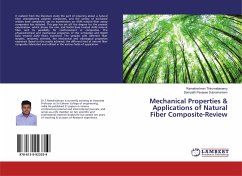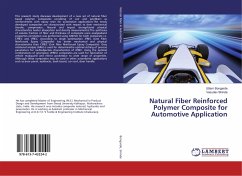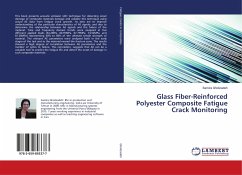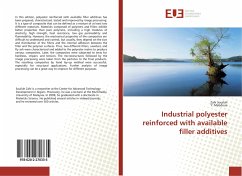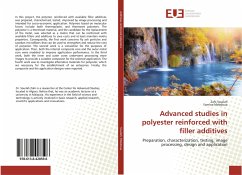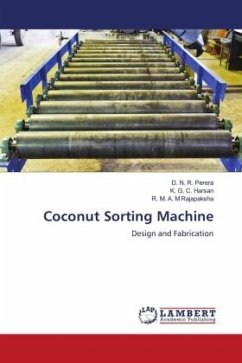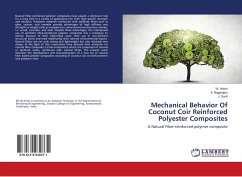
Mechanical Behavior Of Coconut Coir Reinforced Polyester Composites
A Natural Fiber-reinforced polymer composite
Versandkostenfrei!
Versandfertig in 6-10 Tagen
27,99 €
inkl. MwSt.

PAYBACK Punkte
14 °P sammeln!
Natural Fiber-reinforced polymer composites have played a dominant role for a long time in a variety of applications for their high specific strength and modulus. Polymeric materials reinforced with synthetic fibres such as glass, carbon, and aramide provide advantages of high stiffness and strength to weight ratio as compared to conventional construction aterials, i.e. wood, concrete, and steel. Despite these advantages, the widespread use of synthetic fibre-reinforced polymer composite has a tendency to decline because of their high-initial costs, their use in non-efficient structural forms ...
Natural Fiber-reinforced polymer composites have played a dominant role for a long time in a variety of applications for their high specific strength and modulus. Polymeric materials reinforced with synthetic fibres such as glass, carbon, and aramide provide advantages of high stiffness and strength to weight ratio as compared to conventional construction aterials, i.e. wood, concrete, and steel. Despite these advantages, the widespread use of synthetic fibre-reinforced polymer composite has a tendency to decline because of their high-initial costs, their use in non-efficient structural forms and most importantly their adverse environmental impact. Natural fibers are not only strong and lightweight but also relatively very cheap. In the light of this, researchers have focused their attention on natural fibre composite (i.e.bio-composites) which are composed of natural or synthetic resins, reinforced with natural fibres. The present work describes the development and characterization of a new set of natural fiber based polymer composites consisting of coconut coir as reinforcement and polyester resin.



